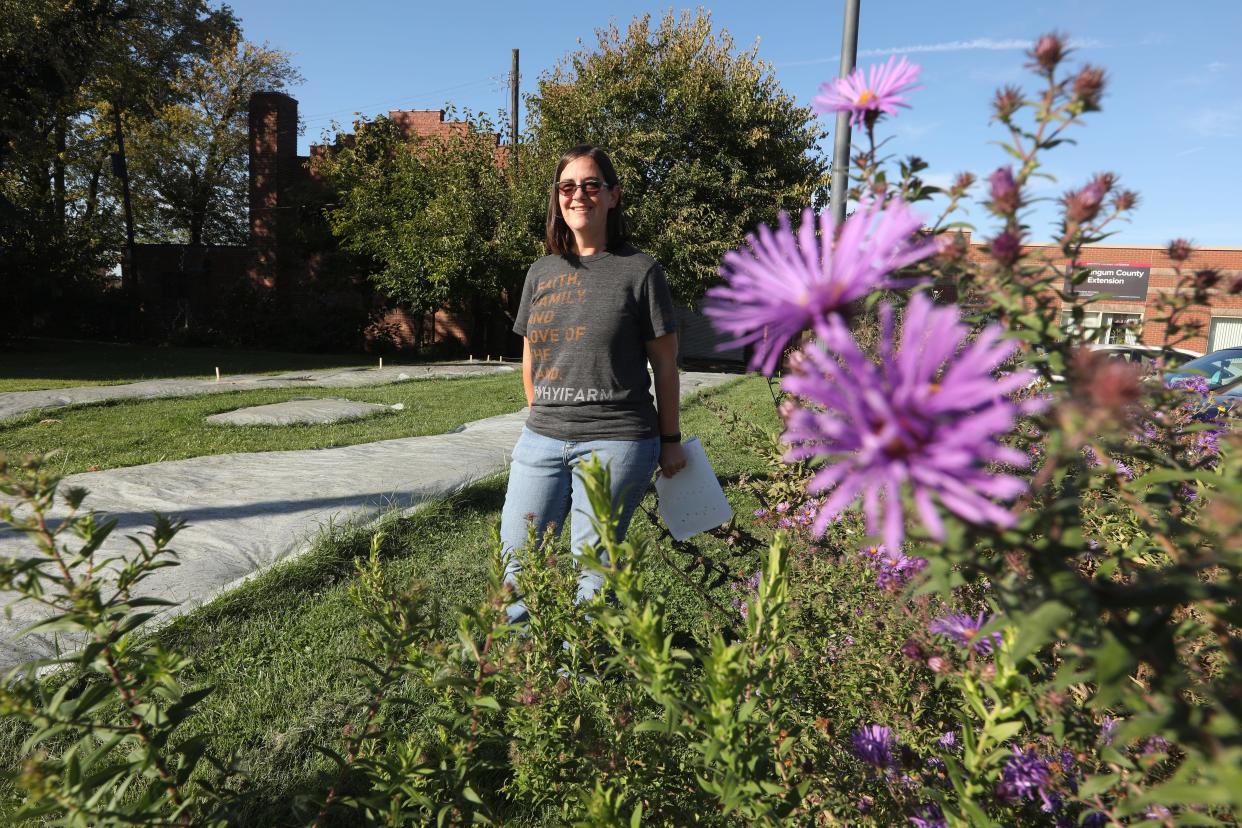Empty lot to become home for pollinators, education

ZANESVILLE — An empty lot in downtown will become a hub for education and a home for pollinators.
Melissa Devore, an agriculture technician with the Muskingum Soil and Water Conservation District, said the conservation district will build the garden near their office, on Shinnick Street.
Planting will begin next year.
The garden will feature a variety of native plants, and help residents choose the appropriate plants for their properties.
"There are going to be different sections," Devore said, "If you have a wet section where nothing seems to grow, we are going to give you examples of what you can plant."
There will also be a section for plants that prefer dryer soil, and a spot for plants that prefer shady areas.
Planting native plants is important because many pollinators need them to survive, and, without pollinators, the human food supply becomes perilous as well.
According to the United States Department of Agriculture Farm Service Agency, pollinating insects, which include honeybees, butterfies, moths, beetles, flies and wasps, "are responsible for pollinating more than one third of the foods we eat and 80 percent of plants."
Devore points to the ever-popular monarch butterfly as an example of a well-known pollinator that needs specific plants to survive, the milkweed. The garden will feature five different milkweeds native to Ohio.
The idea is to "encourage people to plant native plants in their back yard," Devore said. "Little bits at a time," she said. "Maybe just a small section of your back yard in native plants."
The garden will be an educational tool, with plants labeled so planters can see what they will get when they start to grow. "Goldenrod is not just a weed," she said. "It has a purpose. There is a place for it too."
Devore points to project at the Zanesville Wastewater Treatment Plant this summer. The MSWCD teamed up with the city to plant about 1,600 native plants there, and Devore said the number of caterpillars and butterflies she saw once the plants began to bloom were "unbelieveable."
"We had 90 caterpillars and 36 crysalis, we are going to tag some monarchs and see if they make it to Mexico."
ccrook@gannett.com
740-868-3708
Social media: @crookphoto
This article originally appeared on Zanesville Times Recorder: Empty lot to become home for pollinators, education

